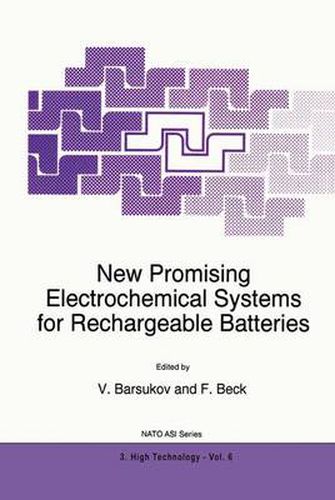Readings Newsletter
Become a Readings Member to make your shopping experience even easier.
Sign in or sign up for free!
You’re not far away from qualifying for FREE standard shipping within Australia
You’ve qualified for FREE standard shipping within Australia
The cart is loading…






This title is printed to order. This book may have been self-published. If so, we cannot guarantee the quality of the content. In the main most books will have gone through the editing process however some may not. We therefore suggest that you be aware of this before ordering this book. If in doubt check either the author or publisher’s details as we are unable to accept any returns unless they are faulty. Please contact us if you have any questions.
Electricity is the most important secondary energy source, the present production rate, mainly from thermal electric power stations, being of the order of 1.3 TW. However, the total capacity of primary and rechargeable batteries currently in use is the same as the output of the world’s power stations. But present battery systems will not meet future needs for the economical storage of large amounts of electrical energy for vehicles, public transport, road levelling, solar energy utilisation, civil video and audio, terrestrial and space communications, etc. Current accumulators based on aqueous acid or alkali systems do not have sufficient output and, moreover, the materials employed (Pb, Cd, Ni) are environmental pollutants that require safe recycling. Further, stocks of these strategic metals are being rapidly depleted. This book discusses actual field results with novel systems, such as rechargeable lithium batteries, zinc/air cells, metal-free accumulators, graphite/carbon devices and others, including fuel cells. The book stresses that a universal electrochemical system is not feasible: the choice of any system must depend on the concrete field of application and must be taken in consideration of a large number of technical, economic and environmental circumstances.
$9.00 standard shipping within Australia
FREE standard shipping within Australia for orders over $100.00
Express & International shipping calculated at checkout
This title is printed to order. This book may have been self-published. If so, we cannot guarantee the quality of the content. In the main most books will have gone through the editing process however some may not. We therefore suggest that you be aware of this before ordering this book. If in doubt check either the author or publisher’s details as we are unable to accept any returns unless they are faulty. Please contact us if you have any questions.
Electricity is the most important secondary energy source, the present production rate, mainly from thermal electric power stations, being of the order of 1.3 TW. However, the total capacity of primary and rechargeable batteries currently in use is the same as the output of the world’s power stations. But present battery systems will not meet future needs for the economical storage of large amounts of electrical energy for vehicles, public transport, road levelling, solar energy utilisation, civil video and audio, terrestrial and space communications, etc. Current accumulators based on aqueous acid or alkali systems do not have sufficient output and, moreover, the materials employed (Pb, Cd, Ni) are environmental pollutants that require safe recycling. Further, stocks of these strategic metals are being rapidly depleted. This book discusses actual field results with novel systems, such as rechargeable lithium batteries, zinc/air cells, metal-free accumulators, graphite/carbon devices and others, including fuel cells. The book stresses that a universal electrochemical system is not feasible: the choice of any system must depend on the concrete field of application and must be taken in consideration of a large number of technical, economic and environmental circumstances.